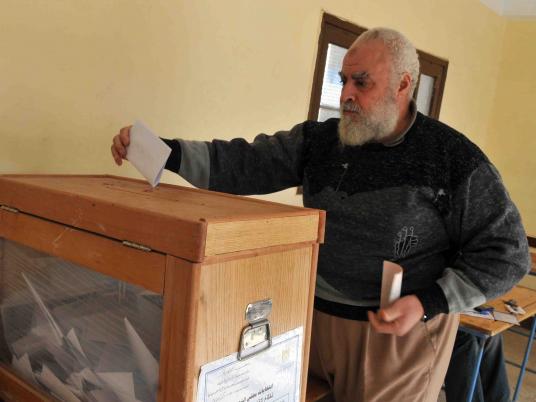The international opinion polling firm Abu Dhabi Gallup is due to release a report tomorrow shedding light on Egyptian public opinion post uprising, suggesting that the Muslim Brotherhood may have less support than previously expected, and that most Egyptians are optimistic about the future,despite deteriorating economic conditions.
The report, which is based on face-to-face interviews with 1000 Egyptians through the month of April, addresses issues ranging from the level of popular support for the 18-day uprising that overthrew President Hosni Mubarak to views on the role of religion in the state.
Abu Dhabi Gallup revealed some of its findings at a press conference today in Cairo.
The report shows that while only 11 percent of Egyptians participated in the uprising, 83 percent supported it. The average household income of those who participated mirrors the population at large, according to Abu Dhabi Gallup.
An overwhelming majority, 94 percent, of Egyptians have confidence in the military, which has been running the country since Mubarak left power. The military has come under scrutiny recently for trying civilians in military courts and censoring journalists.
As a dialogue over the future of the “civil state” in Egypt continues in the media and among political forces, 69 percent of those polled said they support an advisory role for clerics in the new government in writing national legislation. Fourteen percent said the religious leaders should have “full authority” to write legislation.
In perhaps the biggest contradiction to previously held views, the poll found that only 15 percent of Egyptians support the Muslim Brotherhood.
Many have speculated that the Islamist group, which is widely considered Egypt’s best-organized opposition movement, will make major gains in parliamentary elections scheduled for September. The Brotherhood has said it will contest 50 percent of seats in the parliament.
Meanwhile, 10 percent of respondents say they favor Hosni Mubarak’s National Democratic Party, which was dissolved in mid April. Only two other parties were included in the questions given to poll respondents. Approximately 18 parties are currently in the process of being formed.
A rash of sectarian clashes has erupted since Mubarak’s ouster on 11 February, leaving at least 24 dead and more than 200 wounded. Nonetheless, 67 percent of those polled said they would not object to a person of a different religious faith moving in next door, the second highest percentage in the Middle East after religiously diverse Lebanon.
The report suggests that concerns about lawlessness throughout Egypt are being felt. Thirty-nine percent of respondents said they felt unsafe walking alone at night in the city where they live, up from 17 percent a year ago. Crime has reportedly been on the rise in recent months due at least in part to police negligence.
At the same time, Egyptians are seriously concerned over their economic futures, with a little over half saying economic conditions are “getting worse,” up from 25 percent a year ago.
While the results of the poll suggest that post-Mubarak Egypt faces a number of challenges, respondents still appear to be overwhelmingly optimistic.
Seventy nine percent of those polled believe that peaceful means can improve the situation of those suffering from oppression.
Ninety percent of those polled say they plan to vote in upcoming elections, roughly the same number that believes the elections will be fair and honest.

